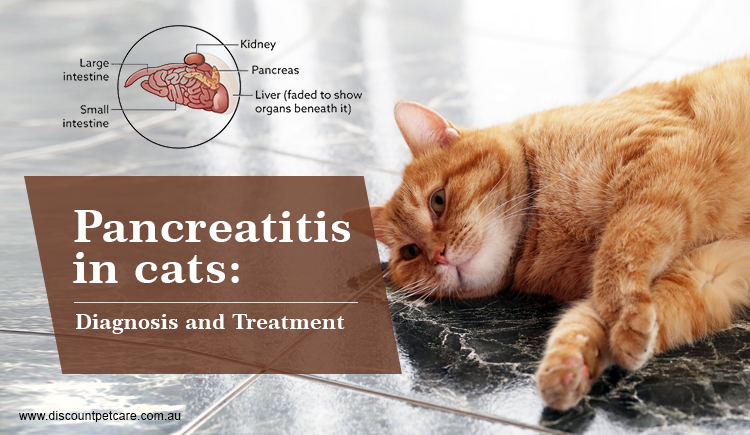Pancreatitis (inflammation of the pancreas) is a gastrointestinal condition that affects cats. While it is only diagnosed in a small percentage of cats, it is much more common than we think. This is due to the fact that the symptoms of pancreatitis in cats are ambiguous and easy to overlook, making diagnosis difficult.

Let us find out how Pancreatitis in cats is treated:-
What is the role of the pancreas in cats?
The pancreas has two functions. To keep blood sugar levels in check, the first step is to generate insulin. The second function is to generate enzyme precursors, which help in the digestion of food.
The exocrine pancreas is involved in feline pancreatitis, which occurs when pancreatic enzymes are activated abnormally early, allowing the organ to be digested.
What are the symptoms of pancreatitis that I should look for in my cat?
Vomiting, anorexia, weight loss, stomach pain, and dehydration are all symptoms of pancreatitis in cats.
When does a pet owner seek the advice of a veterinarian?
If your cat has vomited several times in a single day for the past two or three days, he or she should see a doctor for vomiting, acid reflux, or nausea.
What causes pancreatitis in cats?
It’s unclear what causes feline pancreatitis in the first place. Pancreatitis in cats can be caused by a number of underlying factors, including infectious disease, inflammatory diseases, or trauma.
What tests are normally done when pancreatitis is suspected?
If pancreatitis is suspected in cats, blood testing and ultrasounds is prescribed. However, feline pancreatitis is very difficult to diagnose, necessitating the elimination of other possibilities as part of the procedure.
Acute cases occur when the inflammation and signs of the disease appear unexpectedly in the cat. Some cases are less serious and chronic, but they last a long time.
What is the typical treatment for this condition?
- Your cat is needed to be admitted to a veterinary hospital, depending on how sick he or she is.
- Intravenous fluids will be provided to the cat to help with dehydration and to ensure adequate blood flow to the pancreas.
- The cat’s condition may also necessitate the use of pain relievers, anti-nausea drugs, appetite stimulants, and feeding assistance.
- Antibiotics, vitamins, and anti-inflammatory steroids can also be administered, depending on the possible cause of the disease. This is because cats with pancreatitis also have intestinal inflammation, which can make vitamin absorption difficult.
- In extreme cases of pancreatitis, insulin-dependent diabetes may develop. This impact may be short-term or long-term.
- Insulin therapy and monitoring may be needed for cats in these circumstances.
More research is required to fully comprehend the feline pancreatitis. This suggests that, rather than a cure, existing treatment options are geared toward successful disease control. Speak with the veterinarian who is treating your pet for more information on this subject.

